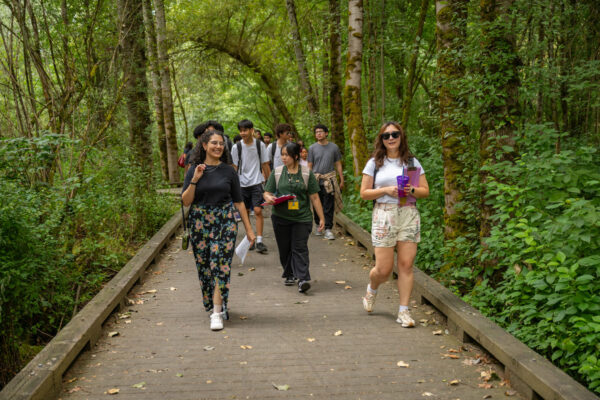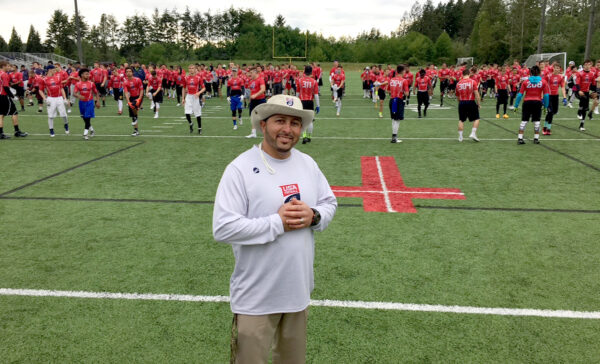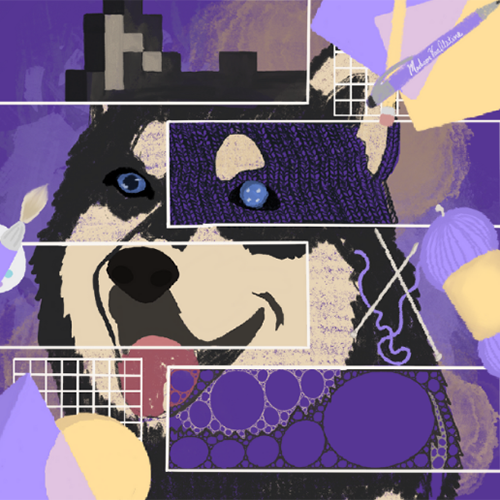Providing access to opportunities students might not otherwise have is a top priority at the University of Washington Bothell. This happens in numerous ways — from community partnerships that create hands-on experiences to cohort programs that prepare students for certain careers.
One such program is the State Academic Rising Scholars program, launched during the 2024-25 academic year to increase access for pre-major students from underrepresented backgrounds who want to complete STEM degrees.
STARS is a two-year, intensive and residential “jump-start” program that offers targeted faculty and staff support — such as frequent check-ins from academic advisers — and includes supplemental courses in math and computer science. The aim is to expand the pipeline to tech careers and contribute to a more inclusive tech industry.
“Our first year was phenomenal,” said Dr. Cinnamon Hillyard, associate vice chancellor and dean for student success. “Students got through their prerequisite math classes, built a strong community, and had opportunities to explore majors and careers in technology and engineering.”
Even as students from the inaugural cohort look back on their first year and ahead to their second year, a new cohort is being welcomed into the program. What’s more, the National Science Foundation recently awarded UW Bothell with a nearly $2 million grant to further support students in engineering and technology majors.
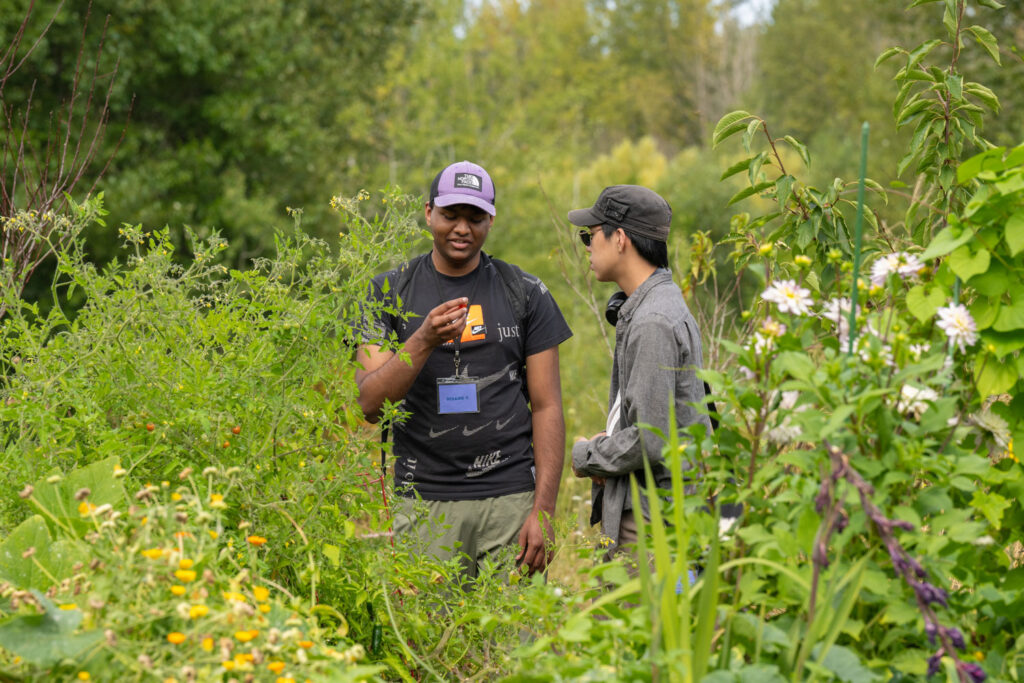
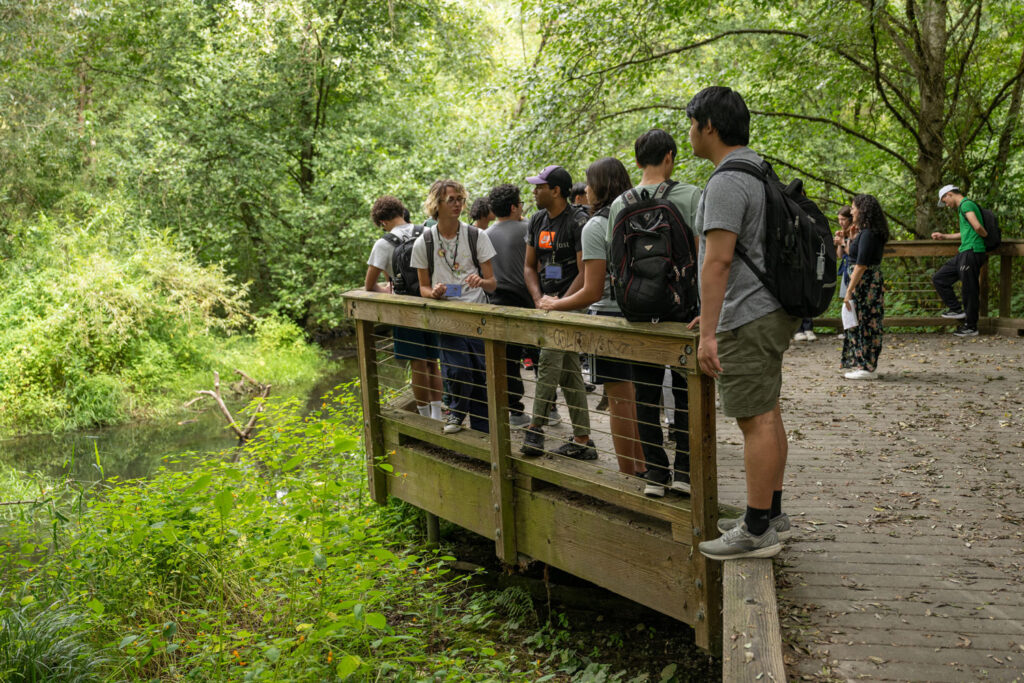
Building the cohort community
Abigail Jawili was attracted to UW Bothell for the small campus feel that fosters a closer connection with faculty. A sophomore who plans to major in Mechanical Engineering, she was similarly interested in the STARS program as a way to find community among her fellow students and support from faculty and staff.
“What drew me most to the STARS program was the STEM focus and that I’d get to be with other students with a like-minded goal of getting into a STEM major,” she said. “Having that community aspect really fueled my drive to be a part of the program, as well as having that support from faculty and advisers to help me succeed through my time at UW Bothell and beyond.”
To build community from the very start, the program kicks off with Summer Bridge, a week-long immersive residency on campus where students prepare to transition to college together as a cohort. More events and community-building activities are then offered throughout the year — and as a program assistant, Jawili had a hand in creating such opportunities. She also served as a peer facilitator for a Stretch Calculus course in the program.
“Being in both my role as a peer facilitator and as a program assistant has been really fulfilling,” she said. “It’s rewarding to see other people succeed and enjoy their time here.
“Knowing that the events I’m creating are building camaraderie within the cohort — and those relationships that may help with college or even go beyond college — is really gratifying.”
“Knowing that the events I’m creating are building camaraderie within the cohort — and those relationships that may help with college or even go beyond college — is really gratifying.”
Abigail JawIli, sophomore, Mechanical Engineering
Trekking to explore careers
Maanya Sood, another program assistant, also looked to STARS to build community. She enjoyed the access she had to faculty and study groups with fellow cohort members — and found the exposure to different career options especially valuable.
Growing up, Sood always loved making things with her hands. That interest later sparked an interest in engineering. Now, as a sophomore pre-major, she plans to apply to the Electrical Engineering program.
Sood got a glimpse of her ideal job during the Spring Tech Trek, a series of visits to local tech companies to learn about careers.
“When we went to Crane Aerospace & Electronics in Lynnwood, everyone was very hands on, and I saw people actually building things, their projects scattered everywhere around them,” she said. “It was exactly what I’d envisioned and hoped for, and it gave me an idea of what I could do in the future.”
In addition to Tech Trek, STARS students also explore career fairs and workshops to help map their academic journey and build career readiness.
Being a program assistant in the program’s first cohort, Sood said she was also in a position to help shape the program’s future. “As a student in the cohort, I understand what everyone else wants and needs from the experience, and so it’s been great to kind of determine the direction and how to meet student needs.”
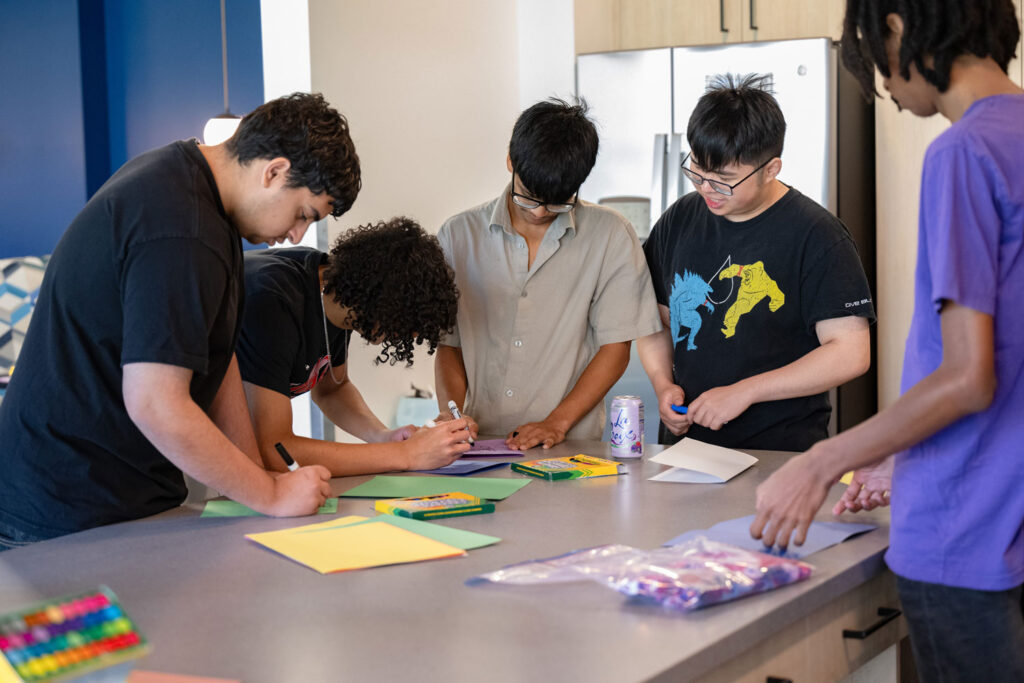
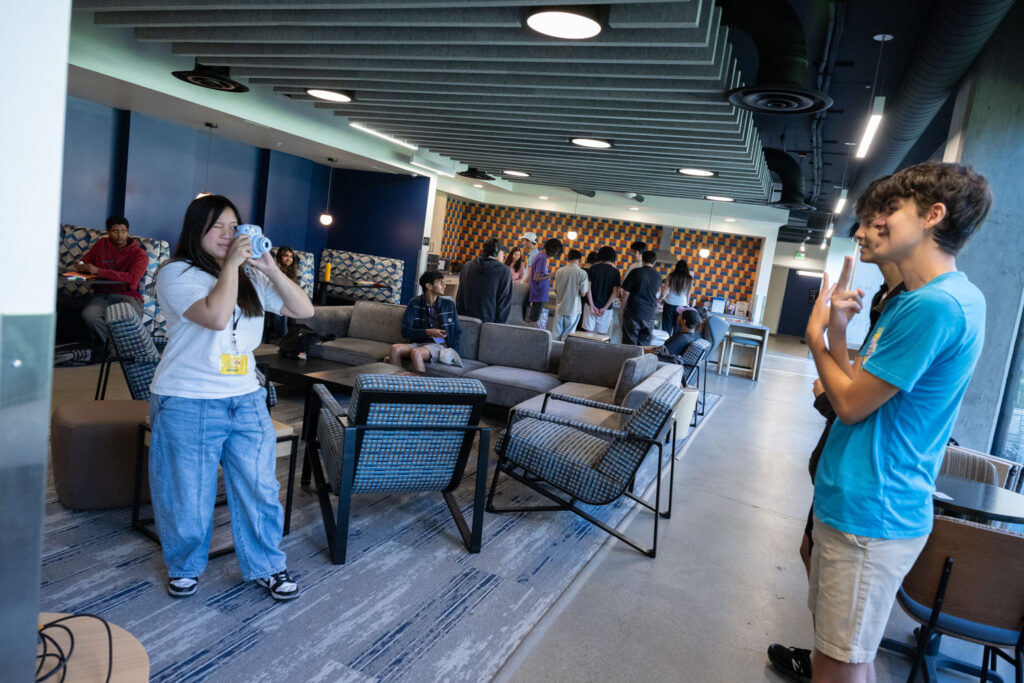
Paying forward lessons learned
As the 2024 cohort enters into its second year, the students get to welcome the new cohort — and suggest program improvements.
Rafael Gefter, a sophomore who plans to apply to the Computer Engineering program and is serving as both a STARS student and an orientation leader, said he is especially looking forward to helping first-year students find their way.
“It’s going to be a whole different experience for the second cohort, and I’m excited to see what happens,” he said. “I hope to help them get acclimated. I want to pay forward all the kindness the STARS program gave me, and that’s part of the reason why I became an orientation leader.”
While student experiences from the first year will help inform how to improve the STARS program in the future, the NSF grant will also have a large impact, Hillyard noted.
Financial struggles are often one of students’ biggest barriers, she said, and the lack of funding often means students have to work long hours while going to school or even go without vital school supplies, such as textbooks or a laptop. “These hardships often get in the way of achieving optimal academic success,” she said.
But now, with the grant, the School of STEM has been able to launch the Bothell Engineering and Technology Scholars program, which will offer 20 scholarships each year to students interested in technology and engineering degrees.
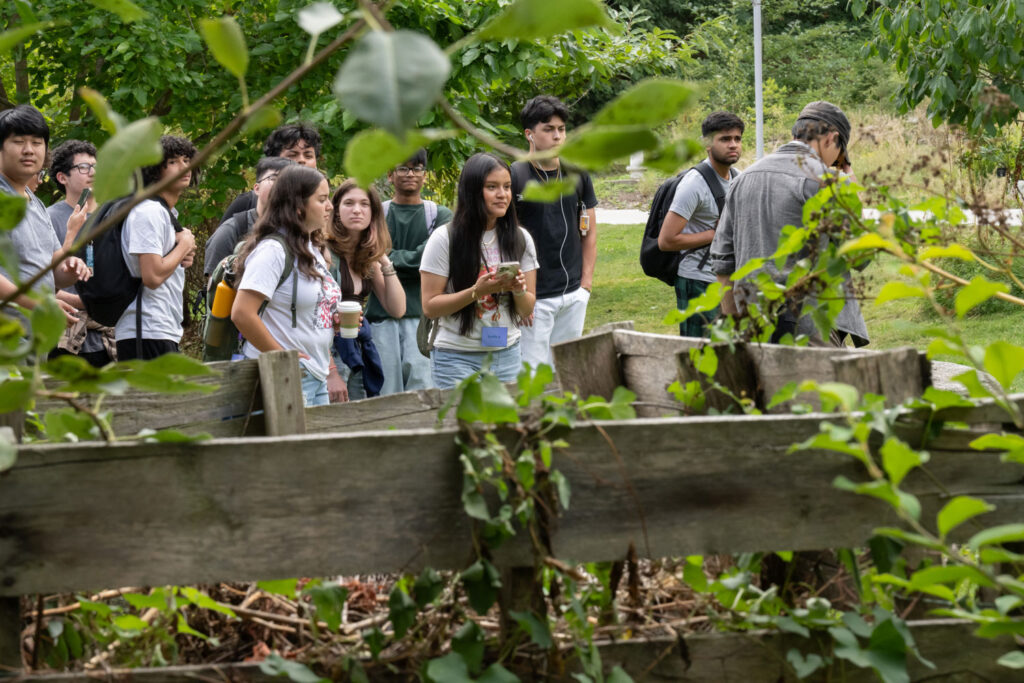
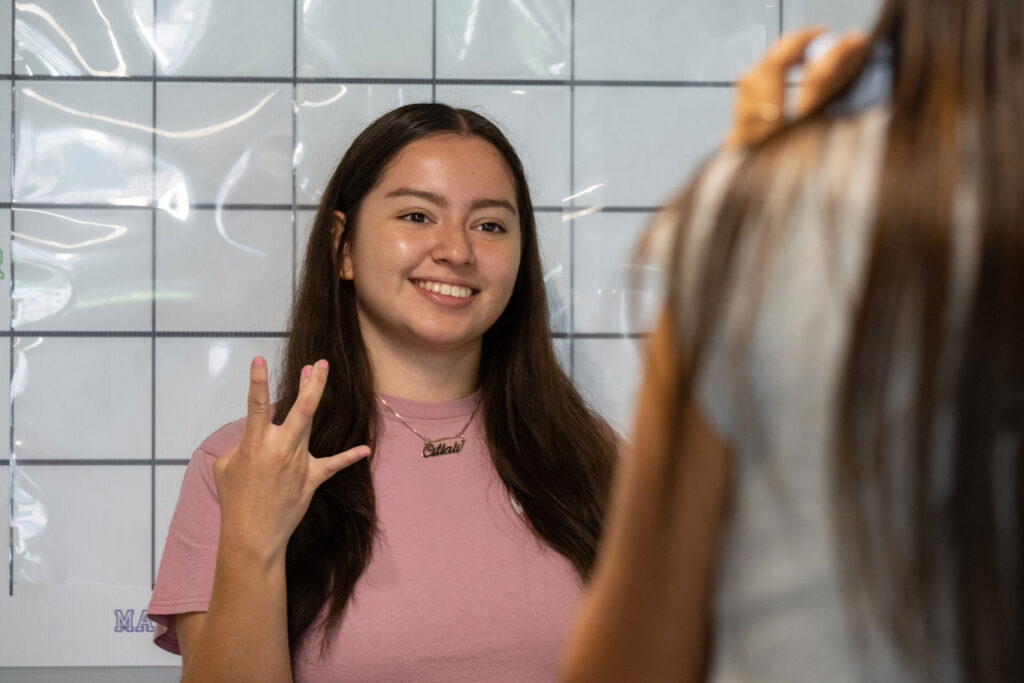
A future of possibilities
The new BETS program serves as an add-on feature to the STARS program, Hillyard said. STARS is only a two-year program, so BETS funds can be additional support for students as they reach upper division coursework and capstone projects.
“We know from research that giving students scholarship funds is only half of the solution,” Hillyard noted. “To ensure success, students also need the support of a program like STARS, which provides opportunities to network, receive academic support and prepare for careers or post-graduate work.”
Hillyard is excited about both the success of STARS’ first year and the additional funds to support students. Looking ahead, she said she also hopes to expand the program to other majors, such degrees in health and natural sciences.
“This work is a result of a true collaboration across campus, including the First Year & Pre-Major Program, School of STEM, many faculty partners, staff in units across Academic Affairs and Student Affairs, and so many more.
“Our campus,” she said, “is truly a place where everyone works together to support our students’ success!”
